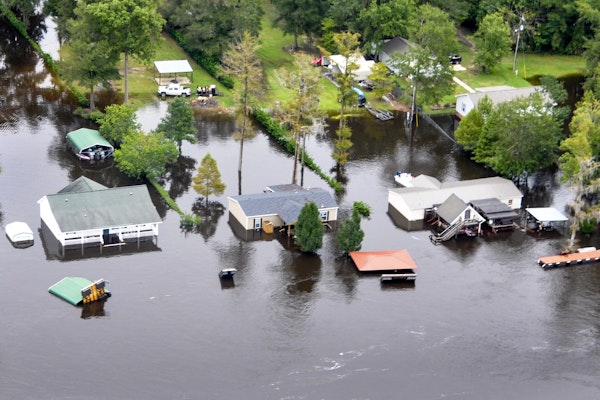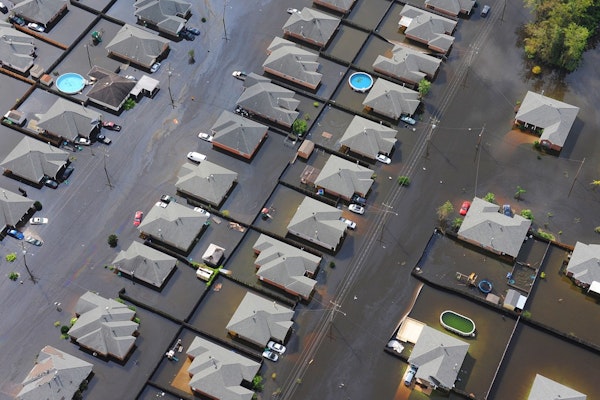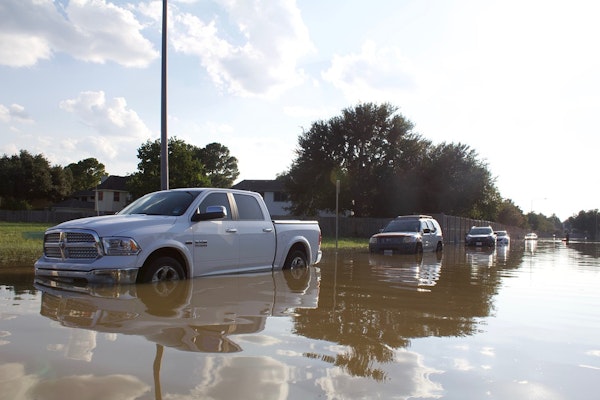
Mississippi Restaurant Fined $1.5M for Seafood Mislabeling Scheme
A Gulf Coast restaurant and co-owner face penalties after years of selling mislabeled imported seafood as premium local fish, defrauding customers and the seafood industry.
November 20, 2024
Fraud
Legislation & Regulation
Liability
Risk Management
Mississippi

Cargo Thefts Surge During Thanksgiving Holiday, Analysis Reveals
CargoNet reports a surge in cargo thefts during Thanksgiving, with high-risk areas and targeted goods revealing sophisticated criminal networks exploiting supply chain vulnerabilities.
November 20, 2024
Fraud
Property
Risk Management
California
Illinois

Winners of the Global Innovation Awards 2024 Recognized for Industry-Shaping Contributions
The 2024 Global Innovation Awards celebrated the innovative strides of insurers and insurtechs in Property & Casualty, Life | Health | Retirement, and Predict & Prevent categories at the Global Insurance Forum in Miami.
November 20, 2024
Life & Health
Property
Risk Management
Technology

Overcoming Common Challenges in Insurance Claims Processing
Automation can streamline claims management by addressing fragmentation, enhancing security, and meeting rising customer expectations while improving efficiency and satisfaction.
November 20, 2024
Insurance Industry
Property
Risk Management
Technology

P&C Insurance Embraces Advanced Technology to Tackle Weather and Cyber Risks
Property and casualty insurers are adopting AI and aerial imagery to address climate challenges, cybersecurity concerns, and improve underwriting accuracy, according to a Nearmap report.
November 20, 2024
Catastrophe
Property
Risk Management
Technology

Rising Roof Claims Challenge Insurers Amid Severe Weather and Roofing Scams
Severe weather, inflation, and roofing scams are driving a surge in roof-related insurance claims, forcing the industry to adjust coverage and policy conditions to manage risks.
November 18, 2024
Catastrophe
Fraud
Insurance Industry
Property
Texas

Transforming Claims with Technology: Predictive Analytics and Machine Learning
Predictive analytics and machine learning are reshaping insurance claims management by enhancing efficiency, detecting fraud, and improving customer satisfaction.
November 18, 2024
Fraud
Insurance Industry
Risk Management
Technology

Michigan Workers’ Comp Reforms Could Reshape Benefits and Disability Rules
Proposed Michigan legislation seeks to redefine workers’ compensation laws by increasing benefit caps, revising the definition of disability, and eliminating distinctions between total and partial disabilities.
November 18, 2024
Insurance Industry
Legislation & Regulation
Risk Management
Workers' Compensation
Michigan

Can Crime Victims Access a Convict’s Workers’ Compensation Settlement Under the Son of Sam Law?
A New York court ruled that workers’ compensation settlement funds are not exempt under the Son of Sam Law, allowing crime victims to seek recovery even if the funds were obtained before conviction.
November 18, 2024
Legislation & Regulation
Liability
Litigation
Workers' Compensation
New York

Jacksonville Insurance Employees Arrested for $1.14M Fraud Scheme
Two Jacksonville healthcare employees allegedly submitted over 40 false claims, defrauding their employer of $1.14 million from 2019 to 2023. Both face serious charges.
November 18, 2024
Fraud
Insurance Industry
Legislation & Regulation
Risk Management
Florida

Insurance Sector on the Brink of Change with Generative AI Advances
AI, driven by breakthroughs in computing power and generative models, is reshaping claims processing, customer service, and operational efficiency in the insurance industry.
November 18, 2024
Insurance Industry
Technology
Underwriting

Insurers Turn to AI Models to Tackle Rising Losses from Extreme Weather
A ZestyAI survey reveals growing confidence in AI risk models, with insurers emphasizing the importance of innovation in addressing climate-related challenges and profitability.
November 18, 2024
Catastrophe
Insurance Industry
Risk Management
Technology

Navigating Flood Insurance Challenges After Hurricanes Helene and Milton
Hurricanes Helene and Milton highlight significant issues in the U.S. flood insurance market, showcasing the gaps in coverage, private market growth, and lessons from Florida’s response.
November 18, 2024
Catastrophe
Legislation & Regulation
Property
Risk Management
Florida

OSHA Reports Fewer Worker Fatalities Investigated in 2024
Worker fatalities investigated by OSHA decreased by 11% in FY 2024, marking the lowest count since 2017. Efforts targeting falls and trench collapses significantly contributed to the decline.
November 18, 2024
Insurance Industry
Legislation & Regulation
Risk Management
Workers' Compensation

Flood Insurance Gaps Highlighted by Hurricane Helene’s Impact
The devastation caused by Hurricane Helene sheds light on the widespread lack of flood insurance, revealing critical challenges in accessibility, affordability, and risk awareness.
November 18, 2024
Legislation & Regulation
Property
Risk Management
Florida
Louisiana
Texas





